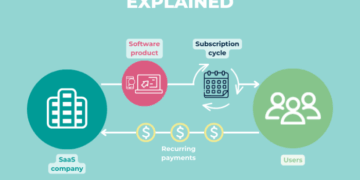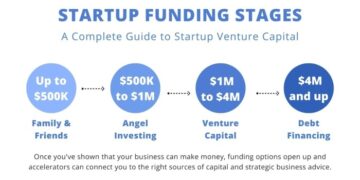Embarking on the journey of establishing a successful freelance career requires meticulous planning and strategic execution. This guide delves into essential steps and key strategies to help you navigate the freelancing world with confidence and purpose.
Exploring the nuances of market research, branding, portfolio development, setting rates, and effective marketing techniques, this guide equips you with the knowledge needed to thrive in the freelance industry.
Research and Planning
Research and planning are crucial steps to take before launching a successful freelance career. By understanding the market and planning strategically, freelancers can position themselves for success in a competitive landscape.
Importance of Market Research
Market research is essential for freelancers to identify opportunities, understand their target audience, and assess the competition. Conducting thorough market research allows freelancers to tailor their services to meet the demands of the market and stand out from competitors.
- Identify niche markets and trends to focus your services on areas with high demand.
- Study the target audience to understand their needs and preferences, enabling you to tailor your offerings accordingly.
- Analyze competitors to identify gaps in the market and develop a unique selling proposition that differentiates your services.
Key Factors for Planning a Freelance Career
When planning to launch a freelance career, several key factors need to be considered to set a strong foundation for success.
- Define your goals and objectives to establish a clear direction for your freelance business.
- Set pricing strategies that reflect your value proposition and competitive positioning in the market.
- Create a business plan outlining your services, target market, marketing strategies, and financial projections.
Comparing Freelance Platforms
Freelancers have a variety of platforms to choose from when starting their freelance career. It's essential to compare different freelance platforms to determine the best fit for your skills and goals.
- Consider the type of projects available on each platform and whether they align with your expertise.
- Evaluate the fees and commission structures of each platform to ensure it aligns with your financial goals.
- Read reviews and testimonials from other freelancers to gain insights into the platform's reputation and user experience.
Building Your Brand
Creating a strong personal brand is crucial for freelancers to stand out in a competitive market and attract clients. Your brand is how you present yourself to the world and what sets you apart from others offering similar services.
Elements of Branding
- Logo: A well-designed logo can help create a memorable visual identity for your freelance business.
- Website: Your website serves as your online portfolio where potential clients can learn more about your services and expertise.
- Social Media Presence: Utilize platforms like LinkedIn, Instagram, or Twitter to showcase your work, engage with your audience, and build credibility.
Showcasing Your USPs
- Identify Your Strengths: Determine what makes you unique as a freelancer and highlight these strengths in your branding.
- Craft a Compelling Value Proposition: Clearly communicate the benefits clients will receive by working with you, emphasizing what sets you apart from others in your field.
- Showcase Your Portfolio: Display your best work to demonstrate your skills and expertise, giving potential clients a glimpse of what you can offer.
Portfolio Development

Building a strong portfolio is crucial for securing freelance projects as it serves as a visual representation of your skills, experience, and expertise. Clients often rely on portfolios to gauge the quality of your work and determine if you are the right fit for their project.
Strategy for Building a Diverse and Impressive Portfolio
Creating a diverse and impressive portfolio requires a strategic approach to showcase your range of skills and expertise. Here are some steps to help you build a portfolio that stands out:
- Identify Your Niche: Focus on a specific niche or industry that you excel in and tailor your portfolio to highlight relevant projects in that area.
- Showcase Variety: Include a variety of projects that demonstrate your versatility and ability to work on different types of projects.
- Quality Over Quantity: Prioritize quality over quantity by selecting your best work to showcase in your portfolio. Highlight projects that best represent your skills and expertise.
- Create Case Studies: Provide detailed case studies for each project in your portfolio to give clients insight into your creative process, problem-solving skills, and results achieved.
Organizing Your Portfolio to Highlight Your Best Work and Expertise
Organizing your portfolio effectively is key to making a strong impression on potential clients. Here are some tips for organizing your portfolio to highlight your best work and expertise:
- Start with a Strong Introduction: Create a compelling introduction that showcases your unique selling points and sets the tone for your portfolio.
- Categorize Your Work: Group similar projects together to make it easier for clients to navigate your portfolio and find relevant examples of your work.
- Show Progression: Arrange your projects in a way that demonstrates your growth and improvement as a freelancer. Show how your skills have evolved over time.
- Include Client Testimonials: Feature testimonials from satisfied clients to add credibility to your portfolio and showcase the positive impact of your work.
Setting Rates and Contracts
Setting rates and creating contracts are crucial aspects of freelancing that require careful consideration to ensure a successful career. It involves determining your worth, protecting your work, and establishing clear expectations with clients.
Determining Your Freelance Rates
Determining your freelance rates can be a challenging task, as you want to ensure you are fairly compensated for your time and expertise while remaining competitive in the market. Consider factors such as your skill level, experience, the complexity of the project, and the client's budget.
Research industry standards and adjust your rates accordingly to reflect your value.
- Research market rates to understand the industry standard and adjust your rates accordingly.
- Consider your skill level, expertise, and the time required to complete the project when setting your rates.
- Factor in additional costs such as taxes, overhead expenses, and benefits when determining your rates.
- Be confident in your pricing and communicate the value you provide to clients.
Creating a Sample Contract Template
Creating a sample contract template for freelance projects is essential to protect your work and Artikel the terms of the agreement with your clients. A contract should include project details, payment terms, timelines, revisions, and ownership rights. Here is a basic Artikel for a freelance contract template:
Project Description: Brief overview of the project scope and deliverables.Payment Terms: Breakdown of payment schedule, method of payment, and late fees if applicable.Timeline: Project milestones and deadlines for each phase of the project.Revisions: Number of revisions included in the project scope and additional costs for extra revisions.Ownership Rights: Clarification on who owns the final deliverables and any intellectual property rights.
Importance of Clear Communication and Setting Expectations
Clear communication and setting expectations with clients are essential for a successful freelance career. It helps avoid misunderstandings, scope creep, and disputes down the line. Be transparent about your rates, project timelines, deliverables, and any additional costs upfront to establish trust and credibility with your clients.
- Set clear expectations with clients regarding project scope, timelines, and deliverables to avoid misunderstandings.
- Communicate openly about your rates, payment terms, and any additional costs to ensure transparency.
- Address any concerns or questions from clients promptly to maintain a positive working relationship.
- Regularly update clients on the project progress and seek feedback to ensure alignment with their expectations.
Marketing and Networking

In the world of freelancing, marketing and networking are essential components for success. By effectively promoting your services and building meaningful connections, you can attract clients and opportunities that will help grow your freelance career.
Effective Marketing Strategies
- Utilize social media platforms such as LinkedIn, Twitter, and Instagram to showcase your work and reach a wider audience.
- Guest post on industry-relevant blogs or websites to establish yourself as an expert in your field.
- Start a blog or contribute to online publications to increase your visibility and credibility.
Online and Offline Networking Opportunities
- Join online freelancing communities and forums to connect with other professionals and potential clients.
- Attend industry events, workshops, and conferences to network with peers and establish valuable relationships.
- Participate in local networking events or meetups to build connections with potential clients in your area.
Building Relationships with Clients and Peers
Networking is not just about making connections; it's also about nurturing and maintaining relationships over time. By building strong relationships with your clients and peers in the industry, you can create a network of support and referrals that will benefit your freelance career in the long run.
Remember to communicate effectively, deliver high-quality work, and show appreciation for those who support you along the way.
Summary
In conclusion, mastering the art of freelancing involves a blend of creativity, professionalism, and business acumen. By implementing the insights shared in this guide, you can position yourself for success and unlock a world of opportunities in the freelance realm.
FAQs
Why is market research important before starting a freelance career?
Market research helps freelancers understand their target audience, competition, and industry trends, enabling them to make informed decisions and tailor their services effectively.
How can freelancers showcase their unique selling propositions to attract clients?
Freelancers can highlight their USPs by demonstrating their expertise, sharing success stories, and emphasizing what sets them apart from competitors through their branding and marketing efforts.
What should freelancers consider when setting their rates?
Freelancers should factor in their skill level, experience, industry standards, project complexity, and desired income when determining their rates to ensure fair compensation for their services.
Why is networking important for freelancers?
Networking allows freelancers to expand their professional connections, gain referrals, and stay updated on industry trends, opening doors to new opportunities and collaborations.
How can freelancers effectively market their services?
Freelancers can leverage social media, content marketing, email campaigns, and networking events to showcase their expertise, reach potential clients, and establish a strong online presence that attracts business.










